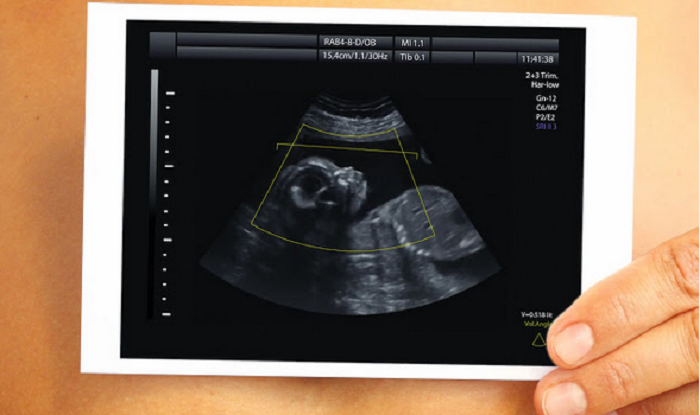There have been two important developments in the past four days in response to the July 14 decision by District Judge Theodore Chuang to suspend an FDA rule, which among other things, requires a woman to have an in-person doctor’s visit before undergoing a chemical (“medication”) abortion during the COVID-19 pandemic.
First, on July 24, the FDA filed a memorandum to stay (halt) Judge Chuang’s preliminary injunction pending an appeal. As NRL News Today reported, Judge Chuang maintained that the safety precautions required by the FDA constituted a “substantial obstacle” to a woman’s right to abortion.
Second, today more than 20 pro-life leaders, including NRL President Carol Tobias, wrote to the head of the FDA urging Dr. Stephen Hahn “to protect American women and preborn children by removing the abortion pill (mifepristone) from the US market.”
The letter approvingly cited (as NRL News Today reported previously) “the FDA’s decision to shut down illegal websites trafficking unapproved abortion pills into the US,” but asked the FDA to go further—“to classify the abortion pill as an ‘imminent hazard to the public health’ that poses a ‘significant threat of danger’” and pull it off the market.
The abortion industry is brazen in its determination to use the COVID-19 pandemic to erase any and all limitations of how women undergo medication/chemical abortions. They are not subtle: their stated objective is DYI abortions in which women receive the abortifacients by mail or pick up them from a pharmacy.
LifeNews depends on the support of readers like you to combat the pro-abortion media. Please donate now.
Proponents, of course, insist such self-administered abortions are safe, an assertion Judge Chuang, an Obama appointee, agreed with wholeheartedly. The letter sent to Dr. Hahn thoroughly and systematically disputed that characterization.
For example,
This lethal drug that the FDA permits for killing innocent preborn children during the first 10 weeks of pregnancy is also highly dangerous for women. According to the FDA’s adverse event reporting system, the abortion pill has resulted in over 4,000 reported adverse events since 2000, including 24 maternal deaths. Adverse events are notoriously underreported to the FDA, and as of 2016, the FDA only requires abortion pill manufacturers to report maternal deaths. Manufacturers gather this information from the prescribers, such as Planned Parenthood facilities. Yet, women who experience side effects like heavy bleeding, abdominal pain, or severe infections are likely to seek care at emergency rooms, not the abortion facilities where they received the pills. Since emergency rooms are not required to report abortion pill adverse events to the FDA, the true number of adverse events is impossible to assess.
For these and other reasons cited in the letter, the pro-life leaders urged the FDA “to pull the abortion pill from the US market immediately and declare it an imminent hazard to the public health”; encouraged “your continued efforts to stop the illegal trafficking of black market abortion pills into US commerce”; and requested the FDA “to fight back against the abortion industry’s radical push to overturn REMS in the courts.”
[In this case REMS– Risk Evaluation Mitigation Strategy—mandates that mifepristone can be dispensed only in clinics, medical offices and hospitals; only by, or under the supervision of, a doctor certified to prescribe the drug; and only to patients who have signed an F.D.A.-approved patient agreement,” to quote the New York Times.]
The FDA’s July 24 memorandum to Judge Chuang dismantled his reasoning point by point by point. (What I neglected to mention in a prior story was the condescending manner in which Judge Chuang haughtily dismissed the FDA’s defense of its REMS policy. He also heavily relied on the testimony of one abortionist– Dr. Heather Paladine.)
The memorandum begins by observing that Judge Chuang incorrectly concluded the abortion industry has “standing” (the legal right) to file a lawsuit on behalf of women seeking medication abortion.
As to the close relationship element, the Court ruled that Plaintiffs “provided specific evidence of close physician-patient relationships, including between Dr. Paladine and her patients.”
But evidence of a single physician’s Relationship with her patients does not establish that the thousands of physicians who are members of the Plaintiff organizations generally have close relationships with their own patients who seek a Mifeprex [the brand name for mifepristone] prescription, and may seek to assert not only the rights of long-time patients, but of all patients seeking Mifeprex prescriptions.
The FDA added tellingly
(I)n fact, the entire point of this suit is to reduce Plaintiffs’ relationship with their patients—and failed to show that their patients were hindered from vindicating their own rights.
The memorandum also persuasively made the case that “Plaintiffs Have Not Shown That the In-Person Requirements Pose a Substantial Obstacle to a Large Fraction of Women Seeking an Abortion During the COVID-19 Pandemic.” That is, the in-person requirement did not constitute an “undue burden” on a woman’s right to have an abortion.
Further, the Memorandum observed that Judge Chuang had “noted that FDA has not fully evaluated the in-person requirement since 2013 and thus has not determined whether the requirements remain necessary in the context of telemedicine or the pandemic.”
The response all but bristled…
In reaching its conclusion. the Court relied on the Supreme Court’s statement in Whole Woman’s Health that courts should avoid “giv[ing] ‘[u]ncritical deference’ to the findings of the legislature.”
But FDA is not a legislature—it is an expert scientific agency responsible for protecting public health by ensuring the safety and effectiveness of drugs. FDA’s evaluation of a drug’s risks to determine the appropriate restrictions necessary for safe use is a matter quintessentially within FDA’s expert scientific judgment.
The FDA concluded that if Judge Chuang decides not to stay his “preliminary injunction pending Appeal,” then it “respectfully asks that the Court summarily deny the motion without awaiting a response from Plaintiffs, so that Defendants can seek relief from the Fourth Circuit expeditiously.”








